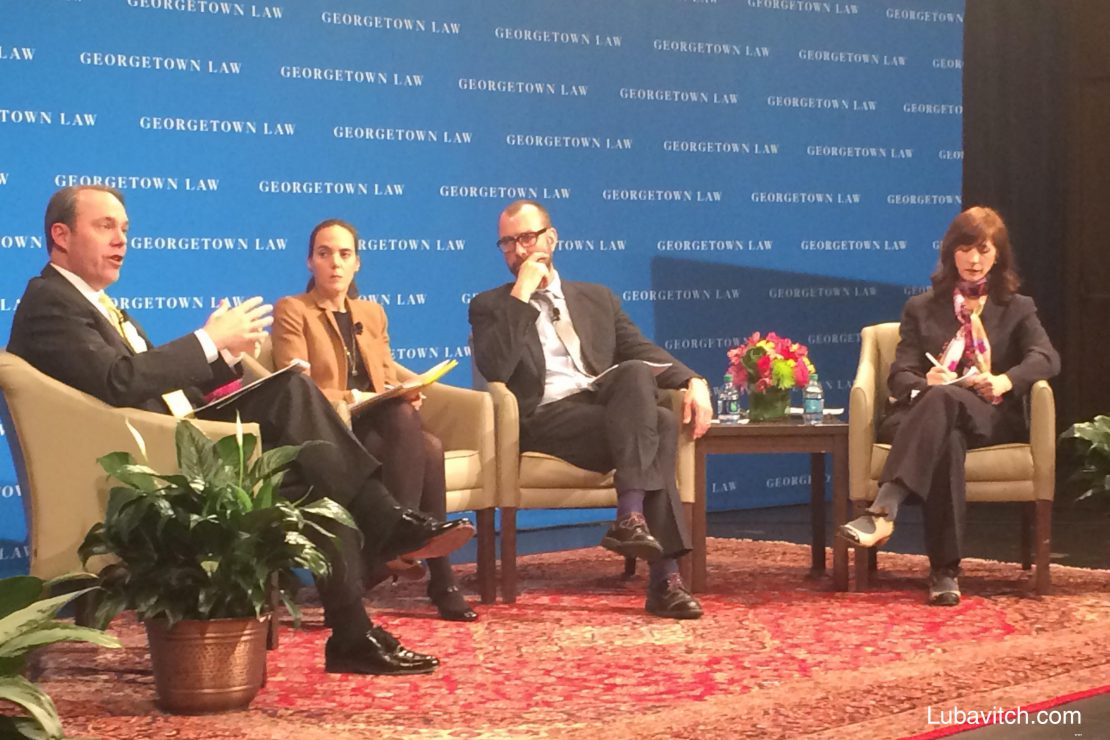This June 17-18, Aleph Institute will partner with Columbia Law School to host Rewriting the Sentence, a summit on alternatives to incarceration. The high-level summit at Columbia University in New York City will highlight the range of alternative sentencing policies and the variety of incarceration alternatives presently available in the U.S. and abroad. Participants will identify cultural and political shifts in sentencing practices and evaluate the efficacy of incarceration alternatives.
A host of public servants and thought leaders will attend the summit, all of whom have served on the front lines of the criminal justice system. This group will include law enforcement, judiciary, and defense personnel; forensic social workers and psychologists; nonprofits; formerly incarcerated people; victims; and advocacy groups.
Aleph’s frontline work on alternative sentencing and rehabilitation is directly inspired by the Lubavitcher Rebbe, who was a strong and early pioneer of criminal justice reform, seeing a fundamental flaw in incarceration strategies that did not serve the goals of re-education and rehabilitation.
“If a person is being held in prison, the goal should not be punishment, but rather to give him the chance to reflect on the undesirable actions for which he was incarcerated,” the Rebbe explained in a 1976 talk. “He should be given the opportunity to earn, improve himself, and prepare for his release when he will commence an honest, peaceful, new life, having used his days in prison toward this end.”

The 2019 summit follows Aleph’s successful Alternative Sentencing Key Stakeholder Summit (ASKS), which was hosted at Georgetown University in 2016. Two hundred judges, prosecutors, defense lawyers, and politicians participated in that event. Those politicians went on to lead the successful effort to pass the First Step Act late last year, which seeks to improve prison conditions and reduce recidivism.
Rabbi Zvi Boyarsky, Aleph’s director of constitutional advocacy, says that the passage of the First Step Act, which Aleph’s rabbis lobbied for, “fits with Jewish values of the sanctity of human life, redemption, repentance, and compassion.”
The upcoming summit will facilitate reform efforts that can “provide prosecutors and judges with greater flexibility and more tools to address the facts of individual cases,” says the Honorable Emmet Sullivan, a U.S. District Judge in District of Columbia who attended Aleph’s 2016 summit. “[It will] serve the twin goals of punishment and deterrence while also serving society’s compelling interest in the rehabilitation of individuals.”
For more information on the summit or Aleph’s constitutional advocacy work, please visit: www.rewritingthesentence.org
RELATED ARTICLES:
Wanted in Prison: Volunteers To Visit Inmates
Aleph Institute Opens New Visitation and Support Division
Dreading the Seder: When Dad is in Prison
The Aleph Institute helps families of inmates celebrate Passover
Empowered to Choose, Even Behind Bars
Chabad prison chaplain helps prisoners reform from within

Be the first to write a comment.